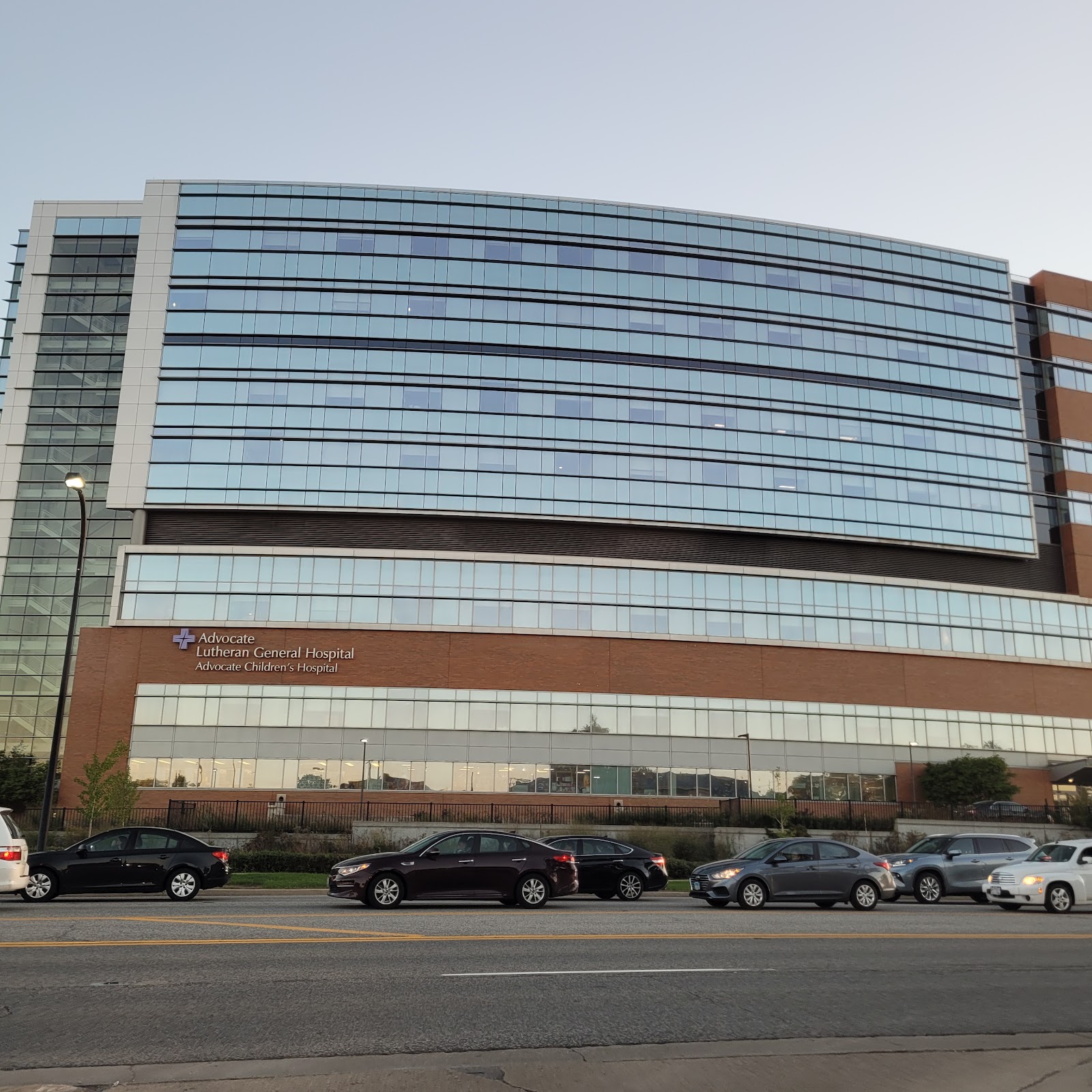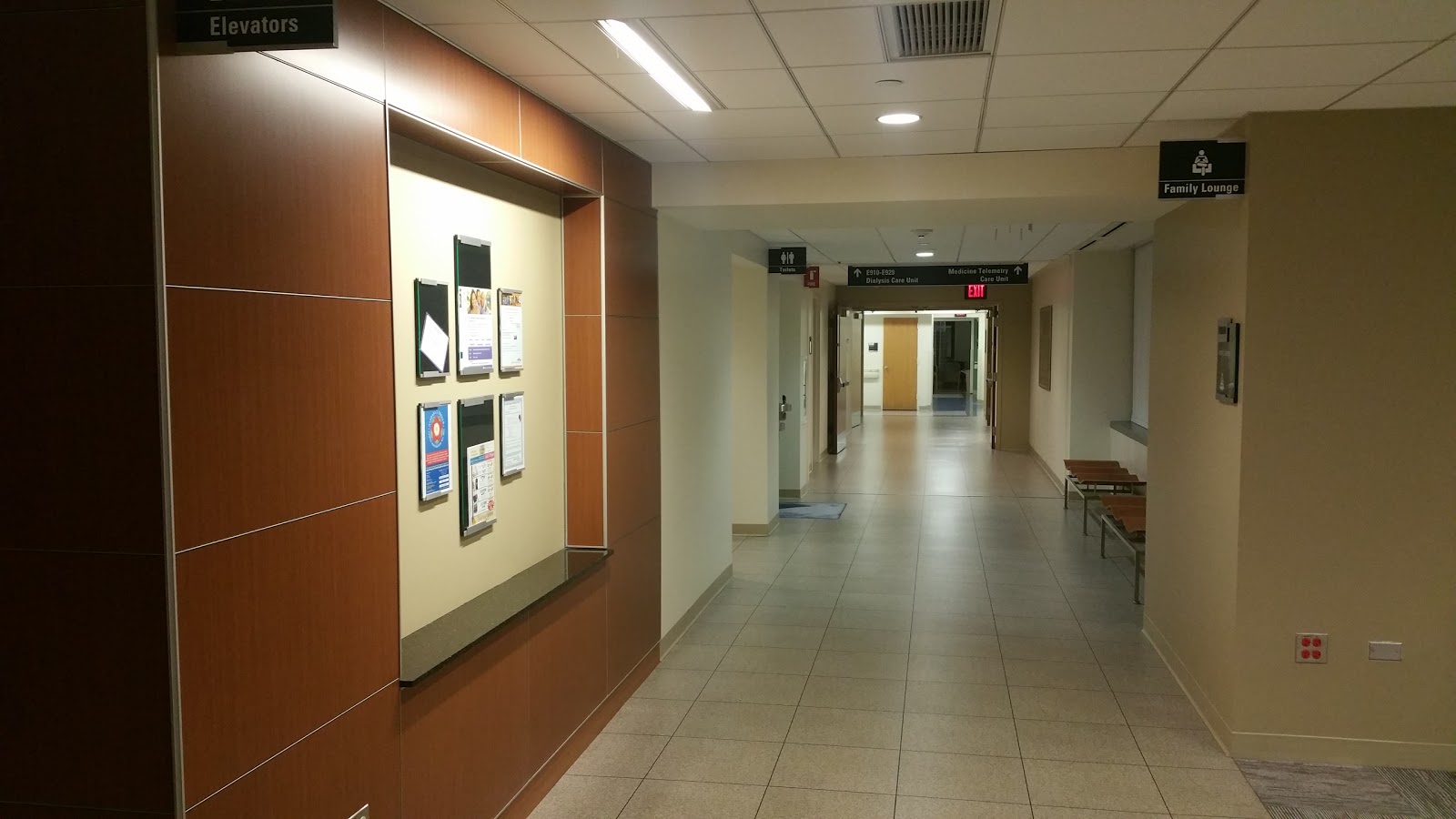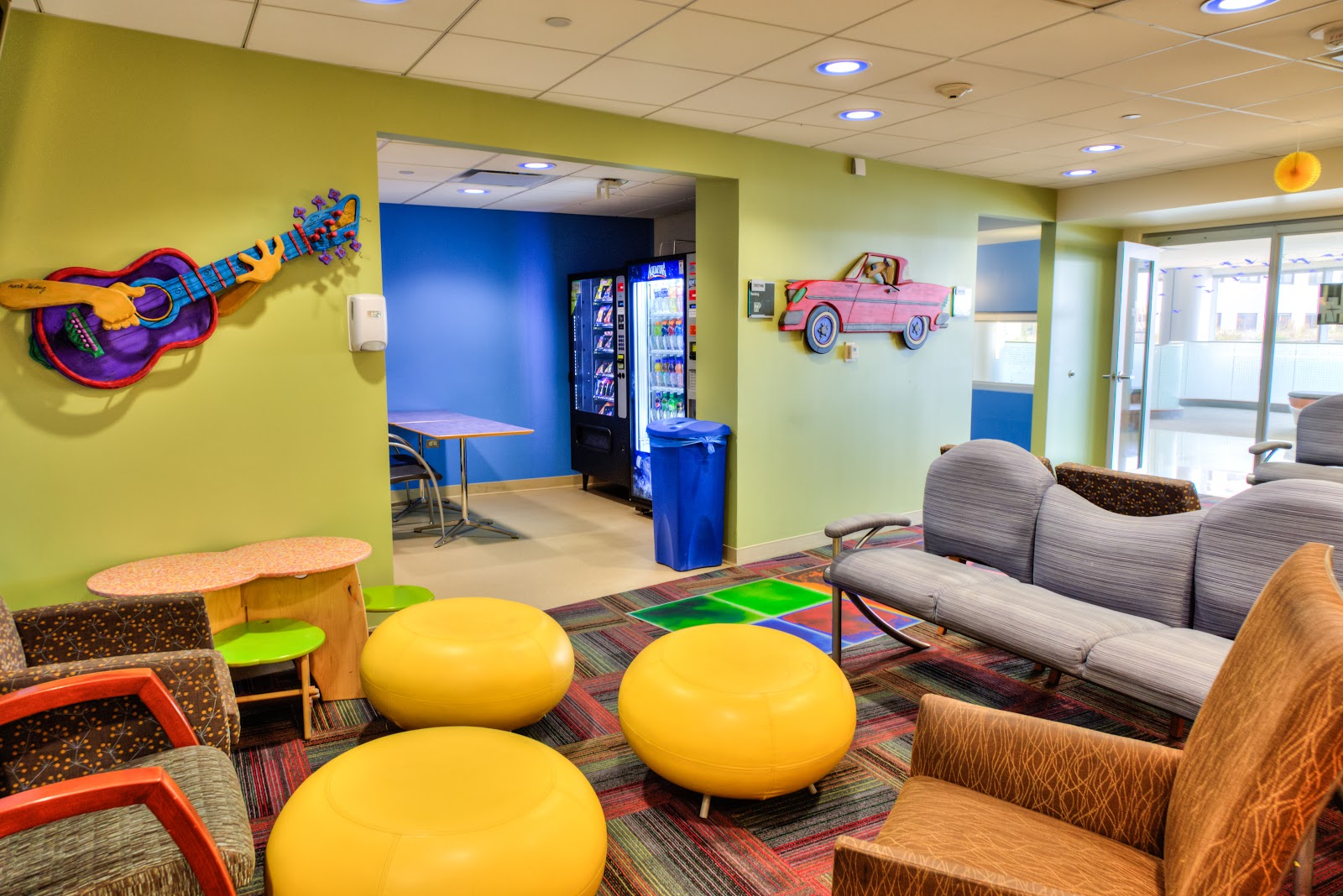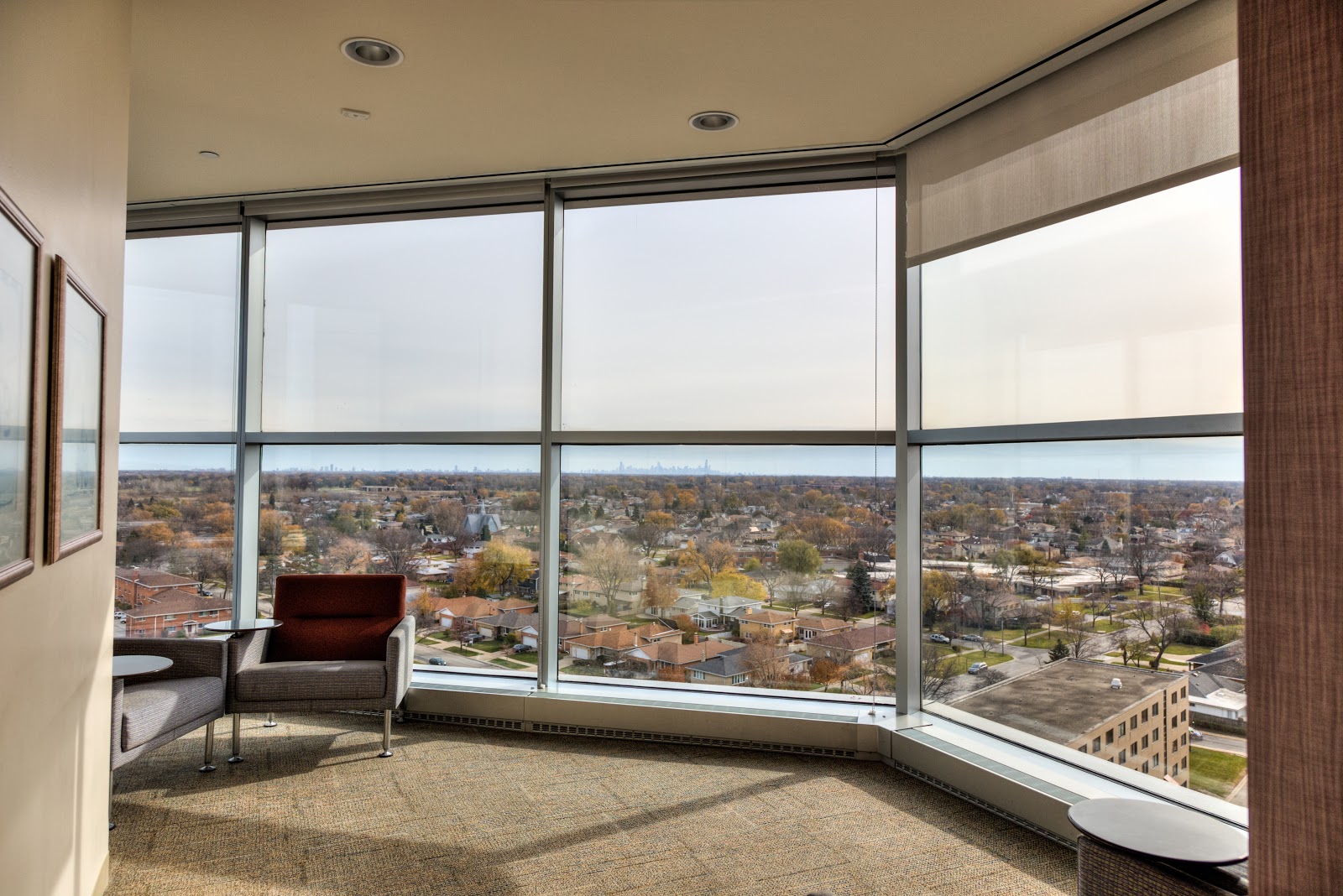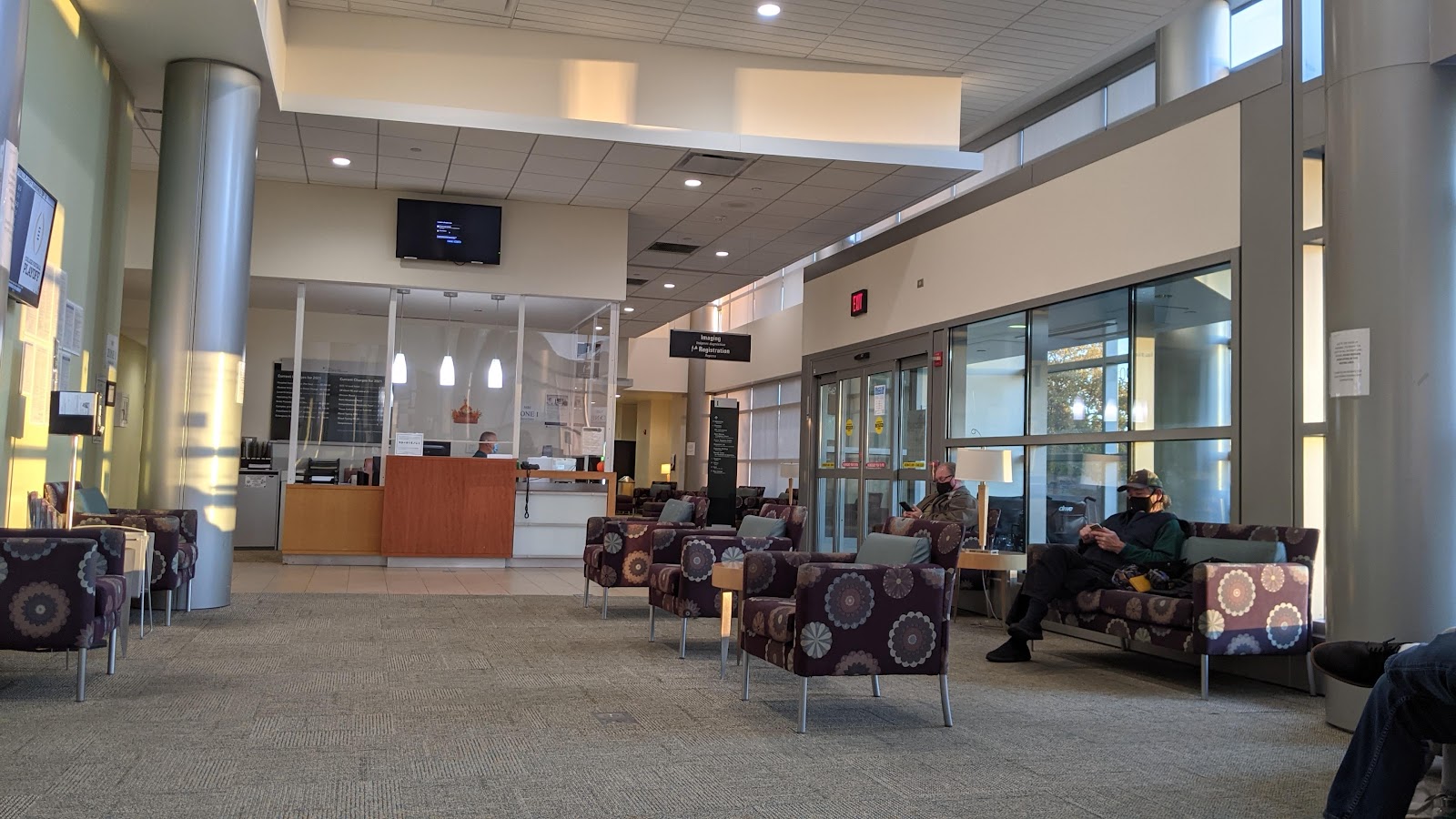Advocate Lutheran General Hospital - Behavioral Health Services
Overview
Situated in Park Ridge, Illinois, Advocate Lutheran General Hospital - Behavioral Health Services provides a wide variety of treatment programs for behavioral problems, including drug and alcohol recovery. A group of experienced and licensed medical specialists staff this discreet clinical environment, offering a range of therapeutic choices including inpatient, intense outpatient, partial hospitalization, and aftercare programs. Adolescents, young adults, adults, and veterans may all access these programs, guaranteeing that the care they get is customized to fit their individual requirements.
Advocate Lutheran General Hospital's inpatient program is intended for patients with severe symptoms who need 24-hour monitoring and care. Clients reside on campus throughout their visit, and they have unrestricted access to medical personnel and resources. A variety of therapy programs run by experts serve as the mainstay of treatment. These programs include occupational therapy, education, skill-building sessions, medication education, group and individual psychotherapy, and management. Each client's care plan is customized for them, giving them the opportunity to actively design their own treatment program to suit their unique requirements for recovery.
For patients with milder symptoms who don't need round-the-clock care, the partial hospitalization program provides an adaptable option. Under this program, clients continue to live at home and carry out their employment obligations while spending several hours a day at the facility receiving care from their committed treatment team. Similar treatment approaches are used in the partial hospitalization program as in the inpatient program, but it provides the necessary flexibility for people who are stable enough to live away from a hospital setting.
As clients return to their regular life, the rigorous outpatient care program gives them even more freedom. It is a structured, daycare therapy option similar to partial hospitalization, but with greater flexibility for those who are prepared to reintegrate into their routines. To facilitate long-term healing and reintegration, this program includes family conferences, social services, and emotional wellness training.
Advocate Lutheran General Hospital places a strong emphasis on offering its graduates ongoing support and care. To guarantee they get the most thorough and specialized treatment possible, clients may also be directed to other facilities for specialized programs. Advocate Lutheran General also collaborates with a number of insurance companies and provides financing and self-pay alternatives. Aetna, BlueCross/BlueShield, Cigna, Humana, TRICARE, United Healthcare, Medicare, Medicaid, and more are among them. It is advised that clients confirm their coverage, since the benefits provided outside of the network may differ based on their insurance plan.
Advocate Lutheran General Hospital is a part of Advocate Health Care, a nonprofit health organization with a faith-based purpose to offer comprehensive care. This kind of thinking views each patient as a unique person made in the image of God, and it focuses on meeting not only their bodily needs but also their emotional and spiritual ones. The organization's goal of serving people, families, and communities via its vast health care network is supported by this strategy.
Advocate Aurora Health was formed in 2018 by the merger of Advocate Health Care and Aurora Health Care of Wisconsin. By merging with Atrium Health in 2022, Advocate Aurora Health continued to grow and became Advocate Health, the third-largest nonprofit integrated health system in the United States. Advocate Health serves a diverse patient population via its 11 hospitals and more than 250 care locations. It uses the most recent methods, tools, and research to provide top-notch medical treatment. Advocating for a compassionate and all-encompassing care paradigm, Advocate Health works to address the changing and varied needs of the communities it serves.
Advocate Lutheran General Hospital - Behavioral Health Services at a Glance
Payment Options
- Cash or self-payment
- Medicaid
- Medicare
- State-financed health insurance plan other than Medicaid
- Private health insurance
Assessments
- Screening for tobacco use
- Comprehensive mental health assessment
- Comprehensive substance use assessment
Age Groups
- Seniors or older adults
- Young adults
- Adults
- Seniors
- Adolescents
Ancillary Services
- Assertive community treatment
- Case management service
- Court-ordered outpatient treatment
- Diet and exercise counseling
- Education services
Treatment At Advocate Lutheran General Hospital - Behavioral Health Services

Conditions Treated
Mental health treatment:
Mental health facilities offer a safe space for individuals to get specialized care. Trained experts create personal plans using therapies, possibly including medication. The goal is to help individuals cope better and lead fulfilling lives, with constant support and a community feel.
Alcoholism:
Alcohol addiction is when a person becomes physically and mentally dependent on alcohol, leading to mood swings, impulsive actions, intense cravings, and withdrawal symptoms. Treatment includes supervised detox, therapy, and support groups. It's important to note that rehabilitation doesn't "cure" alcoholism, but it helps individuals better manage their addiction, regain their ability to function in daily life, and improve their overall well-being.
Substance use treatment:
Substance use rehabilitation is a comprehensive treatment approach designed to assist individuals struggling with addiction to drugs or alcohol. This form of rehabilitation addresses both the physical dependency, often starting with detoxification, and the psychological triggers, using various therapeutic methods. The objective is to empower individuals to achieve and maintain sobriety, while equipping them with the tools and coping strategies needed to reintegrate into society and lead a substance-free life.
Co-occurring Disorders:
Dual-diagnosis rehabs are usually the appropriate solution to treat co-occurring mental health and substance abuse disorders. These facilities typically employ medical and behavioral experts who use a range of interventions, together with the right healing environment, for you to achieve and sustain long-term recovery. Treatment usually includes evidence-based therapies (like cognitive behavioral therapy), recovery support meetings, 12-step facilitation, psychoeducation, skills training, and group therapy.
Opioid Treatement:
Opioid addiction rehabilitation is a specialized treatment process tailored to address the unique challenges and complexities of opioid dependence, including drugs like heroin and prescriptions like oxycodone. The process typically begins with a medical detox to ease withdrawal symptoms, followed by therapeutic interventions to address the root causes of addiction. This holistic approach aims to provide individuals with the skills and support needed for long-term recovery from opioid use.

Levels Of Care
Hospital inpatient/24-hour hospital inpatient:
The 24-Hour Hospital Inpatient for Addiction Treatment program provides continuous medical care and support for those battling substance use and addiction. Located within a hospital setting, this focused inpatient program caters to both immediate and ongoing patient needs, guaranteeing their safety, stability, and thorough rehabilitation.
Outpatient:
Outpatient treatment at rehab centers provides adaptable therapy schedules, usually spanning 1-3 hours weekly, enabling participants to maintain their everyday routines while undergoing treatment. On the other hand, intensive outpatient programs require a more dedicated time investment, frequently around 9-15 hours a week, delivering a deeper therapeutic experience without the commitment of inpatient residency.
Partial Hospitalization Program:
Partial Hospitalization Program (PHP) is an intensive, short-term treatment program that provides a structured therapeutic environment for individuals with acute mental health or substance use concerns. Operating during daytime hours, PHP bridges the gap between inpatient hospitalization and traditional outpatient care, allowing participants to return home in the evenings while still receiving a high level of clinical support and therapy during the day. The program typically includes group therapy, individual counseling, medication management, and other therapeutic interventions tailored to the needs of the individual.
Detoxification:
Drug and alcohol addiction often takes a heavy toll on one's body. Over time, a physical dependence can develop, meaning the body physiologically needs the substance to function. Detox is the process of removing drugs and/or alcohol from the body, a process that can be lethal if mismanaged. Medical detox is done by licensed medical professionals who monitor vital signs and keep you safe, healthy, and as comfortable as possible as you go through detox and withdrawal. The length of stay at the detoxification program is determined according to the specific needs of the patient.
Outpatient detoxification:
Outpatient Detoxification is a medical procedure designed for individuals dealing with substance dependence. It involves a carefully managed and supervised withdrawal from these substances, all without the need for hospitalization or inpatient care. This approach empowers patients to undergo detox from drugs or alcohol within a less confining setting, permitting them to sustain their regular daily obligations such as work or family responsibilities. Comprehensive monitoring, medication administration, counseling, and supportive measures are provided to effectively manage withdrawal symptoms and minimize potential complications.
Intensive outpatient treatment:
Intensive outpatient (IOP) supports clients in maintaining their sobriety by providing tailored, high-quality care that adapts to their changing requirements. Clients participate in numerous weekly treatment sessions, generally receiving between nine to twenty hours of outpatient care. As clients achieve stability, the treatment frequency and intensity gradually diminish. Many intensive outpatient rehabilitation centers offer a range of services, including addiction counseling, training in life skills essential for recovery, and medication-assisted treatment (MAT). Additionally, evidence-based complementary therapies are frequently integrated into the program.
Hospital inpatient detoxification:
Hospital Inpatient Detoxification offers a specialized medical intervention tailored for individuals navigating the challenging process of withdrawal from addictive substances, including alcohol and drugs. Central to its design is the provision of 24/7 medical oversight by a team of interdisciplinary professionals to address any emergent complications and ensure patient safety during the critical detox phase.
Hospital inpatient treatment:
Inpatient treatment involves a comprehensive residential therapeutic program where patients stay on-site for a duration typically ranging from 30 to 90 days. This immersive environment offers structured support, ensuring safety and a focus on recovery. Therapies provided include individual and group counseling, cognitive-behavioral therapy, holistic treatments, family therapy sessions, and experiential therapies. The aim is to address addiction or mental health disorders' physical, emotional, and psychological aspects, laying a robust foundation for sustained healing.
Outpatient day treatment or partial hospitalization:
Outpatient day treatment or partial hospitalization level of care is a type of mental health treatment that provides a high level of care outside of a traditional inpatient setting. It typically involves intensive therapy and support services for several hours each day, several days per week. This level of care is designed for individuals who require more support than traditional outpatient therapy but do not need 24-hour inpatient care.

Treatment Modalities
Couples/family therapy:
Couples Therapy is a specialized form of counseling designed to help couples navigate and improve their relationships. In this therapeutic process, a trained therapist or counselor works with couples to address communication issues, conflicts, and emotional challenges within their partnership. Couples Therapy provides a safe and supportive environment for couples to explore their feelings, understand each other's perspectives, and develop effective strategies for building stronger, more fulfilling connections. It can be instrumental in fostering healthier relationships, enhancing intimacy, and promoting long-term relationship satisfaction.
Group counseling:
Group therapy entails therapeutic sessions conducted in a collective setting rather than one-on-one. It encompasses various modalities, from support groups and experiential therapy to psycho-education and beyond. The approach focuses on treatment and emphasizes the dynamic interactions and shared experiences among group members.
Cognitive behavioral therapy:
Cognitive Behavioral Therapy (CBT) is a evidence-based psychological treatment that focuses on identifying and challenging negative thought patterns and behaviors. It aims to develop coping strategies and promote healthier thinking to address a variety of mental health issues, such as depression, anxiety, and stress. CBT is typically short-term and goal-oriented, emphasizing the role of thought processes in influencing emotions and behaviors.
Integrated Mental and Substance Use Disorder treatment:
Integrated Mental and Substance Use Disorder treatment is a comprehensive approach to treating individuals with both mental health and substance use disorders. It aims to address both conditions simultaneously through a coordinated and integrated approach. The goal is to improve overall well-being and reduce the risk of relapse.
Electroconvulsive therapy:
Electroconvulsive Therapy (ECT) is a medical procedure used in the treatment of severe mental health conditions, such as severe depression, bipolar disorder, and certain types of schizophrenia. During ECT, a carefully controlled electric current is applied to the brain, inducing a controlled seizure. This therapeutic intervention is typically administered under anesthesia and muscle relaxants to minimize discomfort and potential risks. ECT is considered when other treatments, such as medication and psychotherapy, have not been effective or when a rapid and intensive intervention is required. While its exact mechanisms are not fully understood, ECT has shown significant efficacy in relieving symptoms in some individuals, leading to improved mood and overall mental well-being. Healthcare professionals carefully monitor its use to ensure safety and effectiveness for each patient.
Telemedicine/telehealth therapy:
Telehealth Therapy is a level of care that offers psychological counseling and therapeutic services to individuals via digital platforms, such as video conferencing, phone calls, or messaging apps. This approach allows clients to connect with qualified therapists remotely, providing increased accessibility, flexibility, and convenience, especially for those who may have mobility issues, live in remote areas, or prefer the comfort of their own environment. By leveraging technology, Telehealth Therapy bridges the gap between patients and mental health professionals, ensuring continuity of care irrespective of physical distances.
Smoking/vaping/tobacco cessation counseling:
Tobacco cessation counseling is a dialogue with a counselor about your tobacco or vaping habits, examining its place in your daily life to strategize quitting. It offers interventions for individuals keen on quitting, encompassing behavioral guidance and group or one-on-one counseling. These sessions can range from short encounters (under 5 minutes) to in-depth discussions (over 10 minutes) and might require multiple meetings.
Ancillary Services
Languages
- Sign language services for the deaf and hard of hearing
Additional Services
- Pharmacotherapies administered during treatment
- Mentoring/peer support
- Metabolic syndrome monitoring
Special Programs
- Clients who have experienced trauma
- Persons 18 and older with serious mental illness (SMI)
Contact Information
DISCLAIMER: The facility name, logo and brand are the property and registered trademarks of Advocate Lutheran General Hospital - Behavioral Health Services, and are being used for identification and informational purposes only. Use of these names, logos and brands shall not imply endorsement. BetterAddictionCare.com is not affiliated with or sponsored by Advocate Lutheran General Hospital - Behavioral Health Services.
